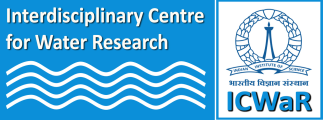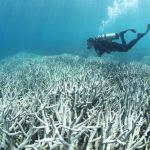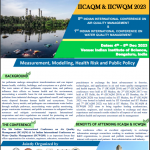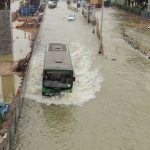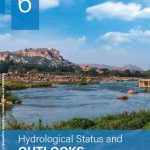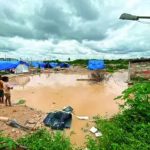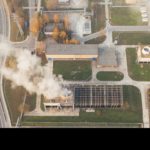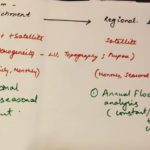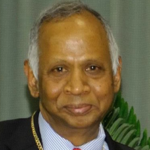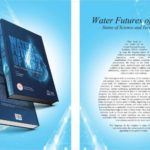Citizen science and participatory monitoring of water resources
Name of the Speaker: Prof. Wouter Buytaert
Title of the Seminar: Citizen science and participatory monitoring of water resources
Date and Time: 22nd December 2020 (Tuesday), 4:00 PM
Online Platform: MS Teams [link to the video of the seminar]
About the Speaker: Wouter Buytaert is a Professor in Hydrology and Water Resources at Imperial College London (UK). His main research interests sit at the interface between hydrological process understanding, water resources management, and sustainable development. He has two decades of research experience in the Andes, where he co-founded a regional initiative for the participatory monitoring of Andean ecosystems, which is active in Bolivia, Peru, Ecuador, and Colombia. He also works extensively in India, Nepal, and Africa, leading projects on climate change impacts, floods resilience, surface and subsurface monitoring, and the link between hydrological extremes and human health. Wouter obtained a PhD in Environmental Engineering at the University of Leuven, Belgium in 2004 and joined Imperial in 2009 after holding research positions at Lancaster University and the University of Bristol.
Abstract: All over the world, water resources systems face unprecedented challenges from overexploitation, degradation, and changing climatic boundary conditions. This poses a major challenge to their sustainable management, which is often aggravated by a scarcity of scientific evidence to support decision making. Despite the advent of remotely sensed data sources such as satellite imagery, quantifying the nature and scale of hydrological processes still relies strongly on in situ observations, which are often time and labour intensive. For example, many of the worlds rivers and other water bodies are still poorly gauged, while hydrometric monitoring networks are in decline in many places. This makes it opportune to explore new arrangements to support and improve hydrological data collection and evidence generation. One such arrangement is citizen science, which refers to the participation of the general public in the scientific discovery process. Although citizen science in itself is not a new phenomenon, the advent of new technologies for hydrological sensing, data processing, and communication opens new perspectives for its application in a water resources context. Moreover, citizen science may provide an opportunity to make the evidence creation process more collaborative, transparent and inclusive. However, implementing sustainable citizen science projects faces many challenges, ranging from the deployment of adequate and robust technologies, to ensuring the generation of long lasting benefits for all the involved actors. Here I draw upon experiences from South America, Africa, and South Asia to discuss some of the challenges and potential solutions of implementing citizen science and other types of participatory monitoring in a water resources context. I synthesise these findings by outlining an analytic framework that may help in the design and implementation of citizen science for natural resources management.
Date/Time
Date(s) - 22/12/2020
4:00 pm - 5:00 pm
